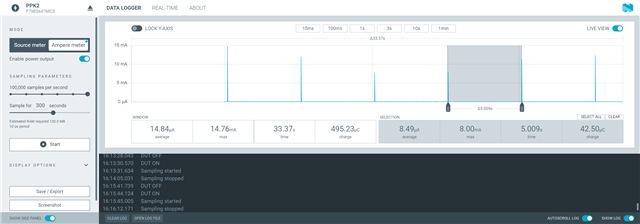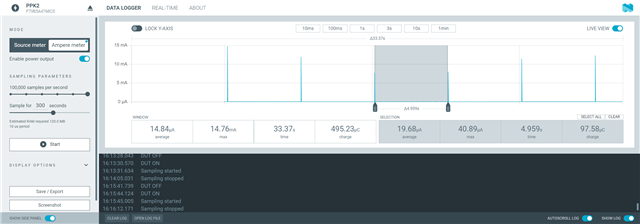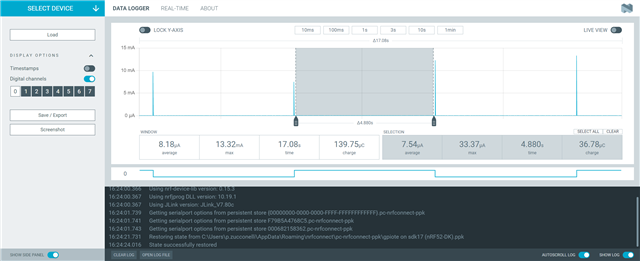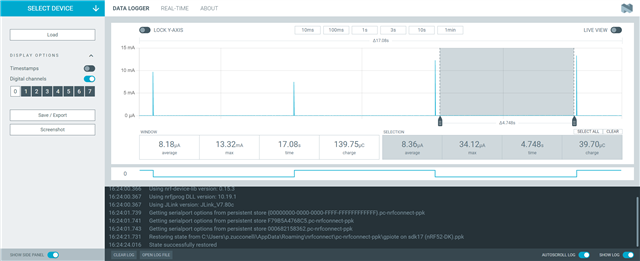Dear Support Team,
I realized that the callback on button press event takes about 11 µA, as reported by PPK2 & nRF52-DK with the code summarized below.
Indeed, the current absorption switches from ~8 µA to ~19 µA when the button callback is configured.
Any help ?
thank you, Paolo
main.c
#include <zephyr/kernel.h>
#include <zephyr/drivers/gpio.h>
#include <zephyr/drivers/spi.h>
#include <zephyr/pm/device.h>
#define BUTTON_NODE DT_NODELABEL(button)
static const struct gpio_dt_spec button_spec = GPIO_DT_SPEC_GET(BUTTON_NODE, gpios);
static struct gpio_callback button_cb;
static void button_pressed_callback(const struct device *gpiob,
struct gpio_callback *cb,
gpio_port_pins_t pins)
{
LOG_INF("user button pressed");
}
int main(void)
{
while (1)
{
// user button
gpio_pin_configure_dt(&button_spec, GPIO_INPUT);
gpio_pin_interrupt_configure_dt(&button_spec, GPIO_INT_EDGE_FALLING);
gpio_init_callback(&button_cb, button_pressed_callback, BIT(button_spec.pin));
gpio_add_callback_dt(&button_spec, &button_cb);
k_msleep(5000);
gpio_remove_callback_dt(&button_spec, &button_cb);
gpio_pin_interrupt_configure_dt(&button_spec, GPIO_INT_DISABLE);
k_msleep(5000);
}
return 0;
}
board.overlay
/ {
inputs {
compatible = "gpio-keys";
button: button {
gpios = <&gpio0 11 (GPIO_PULL_UP | GPIO_ACTIVE_LOW)>;
};
};
};






